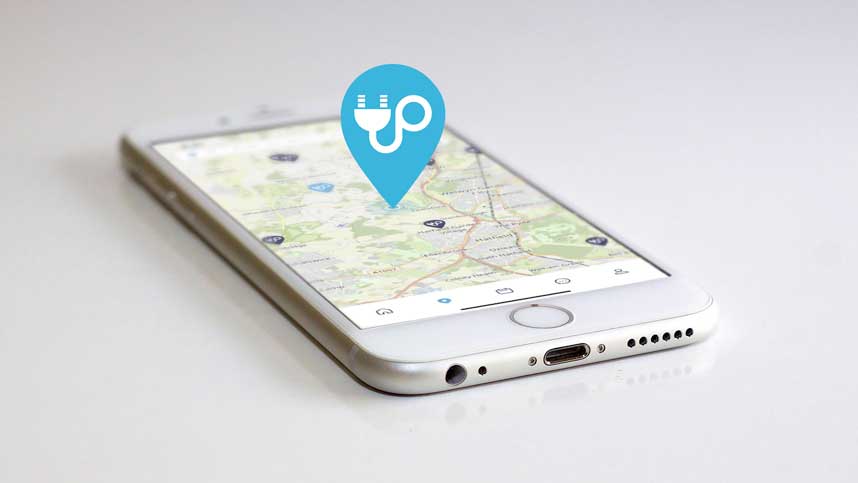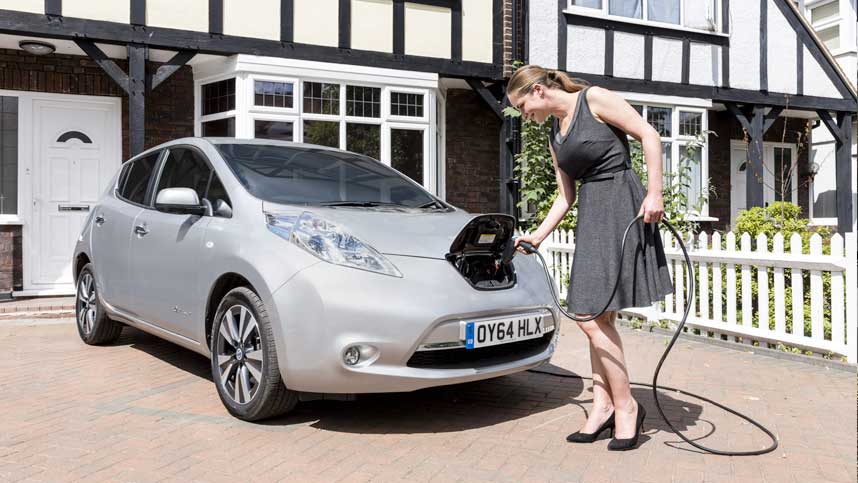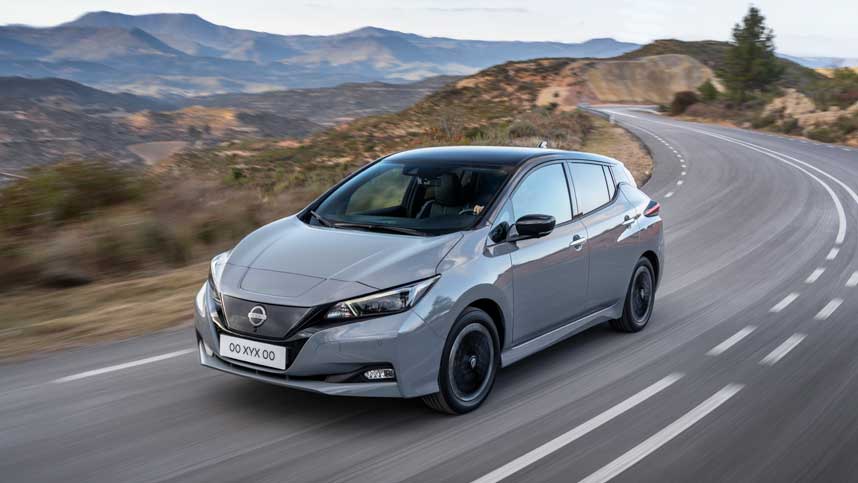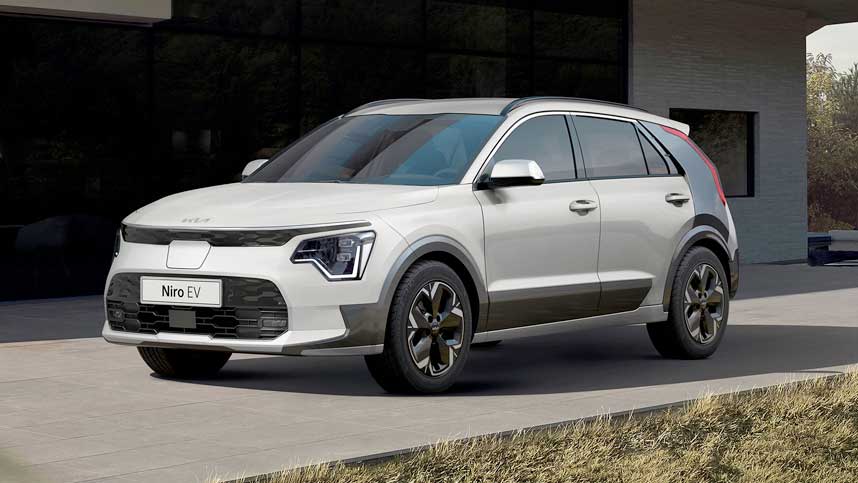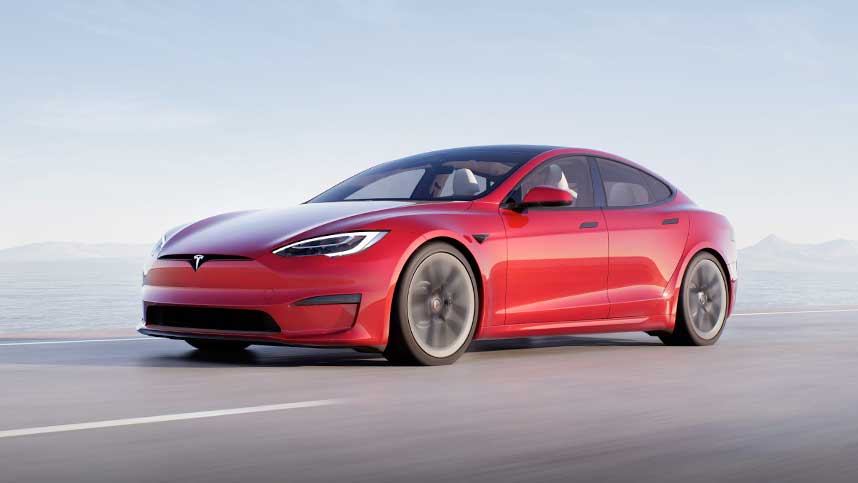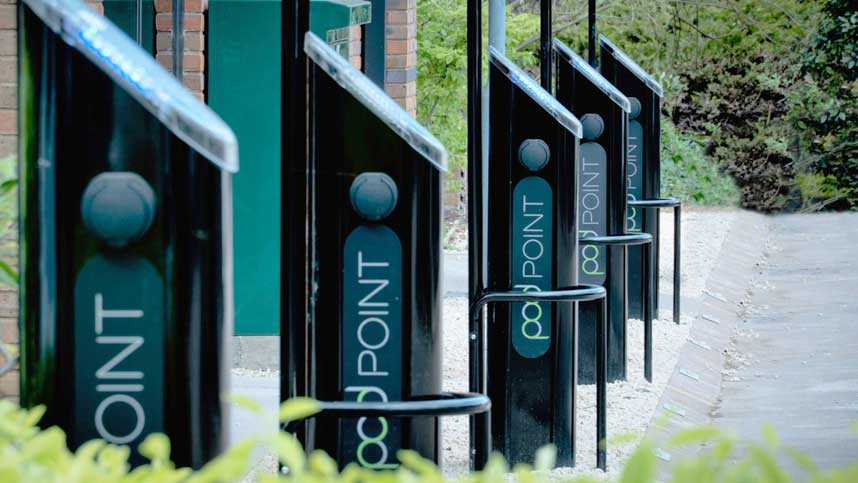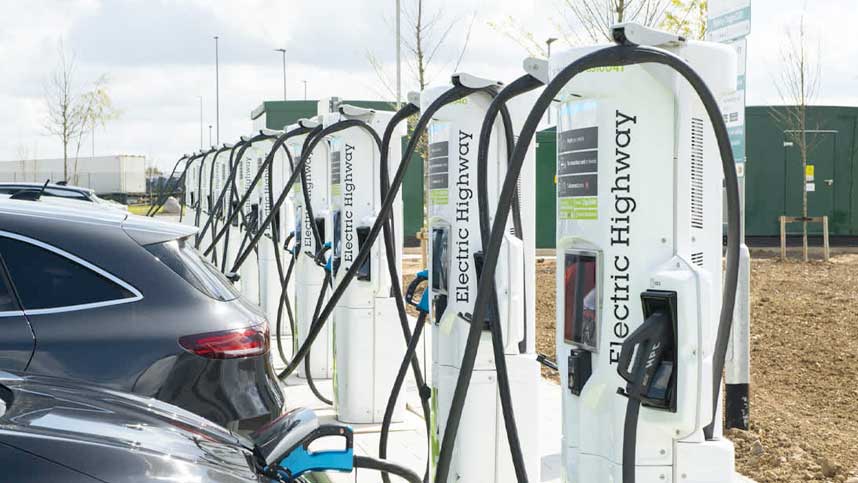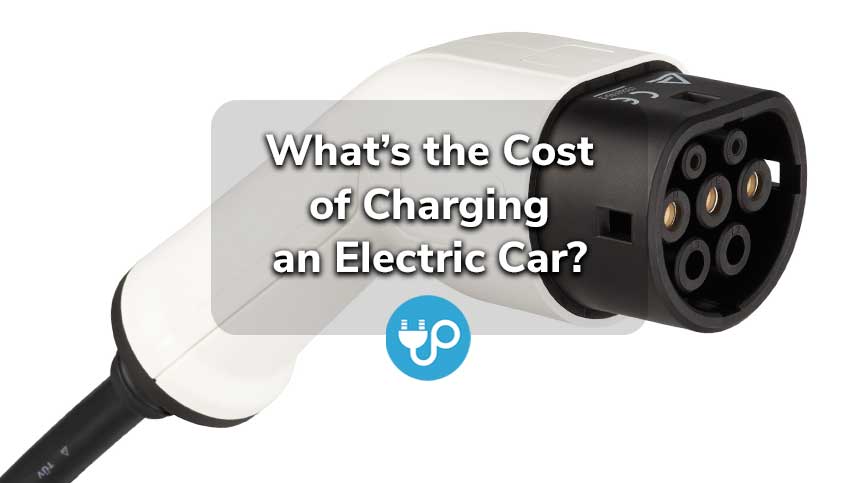
What’s the Cost of Charging an Electric Car?
Before taking the plunge and switching to an EV, many would-be electric car purchasers have many questions on their lips.
One of the most common is how much is the cost of charging an electric car?
It’s a good question, and unfortunately one that can’t be answered with a simple straightforward response.
The costs associated with charging an electric car vary, as it depends on whether you’re charging at home, work, or using the public charging infrastructure.
The cost can also differ depending on when you charge, if you’re charging at home.
Tariffs can vary depending on the energy supplier used, plus the cost per kilowatt hour can dramatically reduce if charged overnight.
Then there’s the size of the car’s battery, and your target percentage charge (normally to 80% with most EV's) which will also affect how much energy is required.
This will also impact the charging cost.
Below we’ll be discussing these factors and various other relevant considerations in more detail.
Chapters
Costs at a Glance
The cost of charging an EV is dependent on various factors.
One way to get a fairly good idea is to use one of the many apps available to download from the App Store and Google Play stores.
Many apps have maps and integrated search facilities to find local charging options available in your area.
This will include places where you can charge your EV, the rate of charge (in kW), as well as the costs associated with using the chargers.
Some public rapid charging points require a membership card to start charging, while others are app-enabled, or accept contactless credit or debit cards at the time of use.
Cost of Charging Electric Cars at Home
If charging at home, the best way to juice up your car is to have a 7kW fast charging wall box installed.
In some cases you can use a 3-PIN socket attached to what is fondly known as a “granny cable”, but charging is very slow at just 3kW output.
Using a home charging unit installed by a qualified OLEZ electrician makes for more sense.
It’s quicker and will cost much less in the longer term.
Moreover, you may be able to benefit from a government grant on the cost of installing such a wallbox.
It’s also worth noting that even though it’s possible to charge your EV using a three-pin plug cable, these are not really designed to support the longer periods required to charge an EV from empty to full.
Moreover, you will avoid having trailing cables running through windows and doors for hours on end.
It’s recommended to charge an electric car overnight, since the cost will be far lower if you have a reduced overnight tariff with your energy supplier.
You might want to check different electricity tariffs available from various suppliers so that you can choose one designed especially for EV drivers.
This will greatly reduce the cost of charging your EV.
Advantages
- Electric car charging at home is super convenient - commonly EV owners plug in their car when they get home, and let it charge overnight, so that the following morning they can wake up to a full battery.
- You have full control over the charging - it’s much better to charge at home rather than having to drive around, possibly with a low battery, in order to charge at a public charger. Home charging offers more peace of mind as you don't have to worry whether you will find a working public charger, or suffer from range anxiety until you charge the car which may be at a low battery. There is also no need to end up queuing behind other cars until the public charger becomes available.
- Safety considerations - sometimes public charging stations are situated in deserted places. You might end up worrying about vandalism or potential theft.
- Home charging is cost effective - if you charge at home, you can charge at times when electricity tariffs are cheaper, and you will not have the overhead which public charging stations impose. You may also wish to consider installing solar panels at home, as in such a way you would be able to charge your EV off-grid, making it even more cost effective.
- It's better for your car battery - public chargers may be considerably faster than home chargers. But it’s worth pointing out that car battery damage can result from repeated rapid charging as the battery’s temperature increases considerably. On the other hand with home chargers batteries get fully charged at a slower rate. And if you're away from home, you can charge your car using 7kW off-street charge points using charger sharing apps like Joosup.
- Compatibility - Home chargers are compatible with a wide variety EV manufacturers, especially if your wall-box is untethered and allows the use of the driver's charging cable.
- Return on investment - Home chargers are proven to increase a property’s value.
Disadvantages
Charging times can be a bit lengthy, so it’s important to choose and install a home electric car charger that can offer the most suitable charging speed and power output.
The cost of installing a wallbox needs to be factored in, although there are government grants that may refund you some of the costs.
This is most certainly worth investigating.
Small Battery Sized Car (40kW)
The cost of charging an electric car at home depends on the size of the battery.
A small electric vehicle will have a battery capacity of around 40kWh
On average in the UK, electricity costs around 28p per kWh.
So for example, if you’re charging a 40kWh EV such as the Nissan LEAF, it would cost you £11 to juice up.
However if you were to charge off-peak, the cost of the charge would be far less.
You can expect to make around 168 miles from a full charge, equating to just 6.67p per mile.
Medium Battery Sized Car (65kW)
In the case of a medium sized battery, you can expect it to cost around £15 to fully charge.
A car with a battery of this size should give you a range of about 200 miles.
Of course, this greatly depends on where you live and the applicable tarrifs.
Large Battery Sized Car (100kW+)
For a large battery sized car, the cost of fully charging it will be around £28.
An example is the Tesla Model S 100D.
The range expected is of around 388 miles, equating to around 7.22p per mile.
Cost of Charging Electric Cars at Public Charging Stations
If you decide to charge your EV whilst out and about, you’ll need to find a public charging station.
In the UK there are thousands of public charging stations in over 16,000 different locations.
These numbers are continually increasing as more providers invest charging points as electric vehicle uptake grows.
The UK’s charging station network is owned and operated by various companies, with most of these being energy firms.
Some require you to register with them, while others are available in supermarkets and public car parks.
For many, it is generally considered ideal simply to top up rather than to fully charge your EV from empty to full.
The cost of charging at a public rapid charging station is typically about £6.50 for a 30 minute charge.
Advantages
- Convenience - Many modern networks offer the convenience of a mobile app which you can download for free in order to find charge points closeby. Some also allow you to pay for your charge in the app.
- Choice - You can benefit from EV chargers in some retail parks and supermarket car parks, allowing you to benefit from free charging while you shop.
Disadvantages
- Queuing - You will need to wait for your turn to charge.
- Time - Charging takes time, so this is generally only considered to be an option to top up not fully charge your EV.
- Reliability - It’s quite common to find public rapid chargers out of service when you arrive.
Cost of Charging Electric Cars at Motorway Charging Stations
Nowadays, motorway service stations generally equipped with rapid charge points.
Hence, drivers will have the possibility to charge their EV battery fairly quickly, sometimes even fully.
This is convenient in case of longer journeys, especially as you can get more peace of mind.
However this option tends to be the most expensive in relation to other charging options.
Put simple, you're paying for the convenience.
As there's usually only one provider of charging points at motorway service stations in the UK, you could argue it's a monopoly.
At one stage these charging points used to be free, but now they typically cost £6 for every half an hour of use, which is quite expensive.
You can expect around 100 miles of range from such a charge.
Having said that, Ecotricity, which is the provider, offers customers who get their domestic energy supply from the company, 52 free EV charges per year.
However, it is worth noting that the government is planning to invest more in motorway service station charging points in the coming years.
The plan is to have at least six chargers in each motorway service area by next year.
Advantages
- Convenience - Fairly convenient in certain locations or longer journeys.
- Speed - Rapid charging is fast and is becoming increasingly common.
Disadvantages
- Queuing - You'll have to queue and wait for your turn if they're all in use.
- Impractical - Persistent rapid charging can lead to battery damage.
- Cost - The most expensive option of all.
- Choice - Until the monopoly issue is tackled, prices will remain relatively high for this option.
Electric Car vs Petrol Car Running Costs
The cost of charging and running an electric car is always significantly less than it is to run an equivalent ICE (internal combustion engine) car using petrol or diesel.
Even though there are differences attributed to EV specifications, battery capacity and the differences in costs using a home charge point or a public charge point, you will still be better off financially with an EV.
To give an example, let us consider an EV which travels an average of 7400 miles.
You can expect to recoup around £900 per year if you were to compare it to the current 17p per mile that a petrol or diesel car will cost on average.
On another note, many people are a bit concerned that the potential running cost savings will end up being offset by the fact that an electric car will cost more than a petrol car.
But in truth, over the years you will be able to recoup such a difference.
On average, an EV’s average running cost is around £33 per week, which is about 20% cheaper than a petrol fuelled car, which generally costs around £42 per week.
Conclusion
In a nutshell, it is definitely more cost efficient to invest in an electric vehicle, not to mention that it is also beneficial to the environment to make this switch.
It is a good idea to consider home charging, but in some cases charging while on the go is almost a must.
In this case it is best to bear in mind that sharing private off-street charging locations is much more beneficial than public rapid chargers, since the latter are more expensive.
Also as previously mentioned, the use of rapid chargers should only be on occasions to prolong the life of your EV’s battery.
So pre-booking and charging using 7kW off-street charger sharing via apps like Joosup make a great deal more sense.
Blog Archive
- 25 New Electric Car Brands on UK Roads
- General Election 2024: Major Party Net Zero Policies Compared
- Electric Car Service Costs vs ICE
- CHAdeMO vs CCS – What’s the Difference?
- Mr EV Reviews Joosup
- What is the ZEV Mandate?
- Spring 2024 Budget: No VAT Rate Cut on Public EV Charging
- What is Regenerative Braking?
- Joosup Powers Up Inaugural Everything Electric Show
- Do Electric Cars Pay Congestion Charges?
- The UK Government is Failing Its Own Targets – EV Charger Sharing Can Plug the Gap!
- Do Electric Cars Have Gears?
- Is EV Battery Recycling Possible?
- Christmas Commuting – How to Avoid EV Charge Rage
- Electric Car Tyres – All You Need to Know
- What Price Should I Rent My EV Charger Out?
- Are Electric Cars Cheaper to Run?
- Do Electric Cars Use Oil?
- 70% of UK Councils Have No On-Street EV Charging Plans
- Joosup + waEV-Charge: Electrifying the Future Together!

